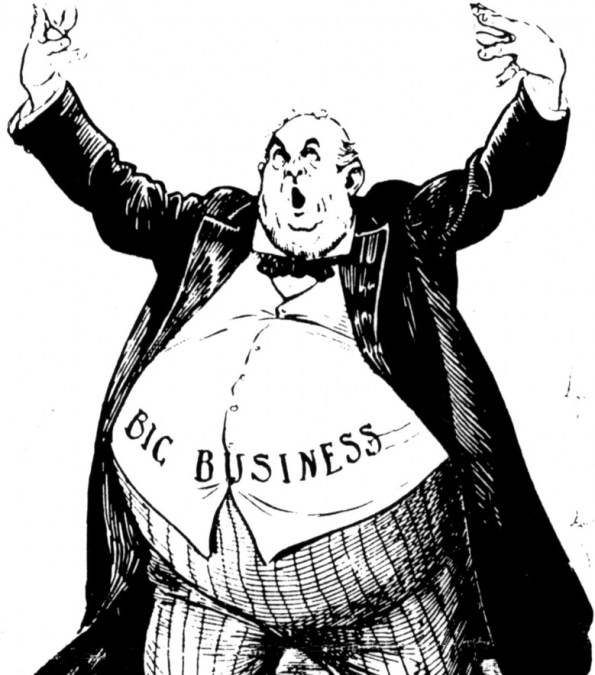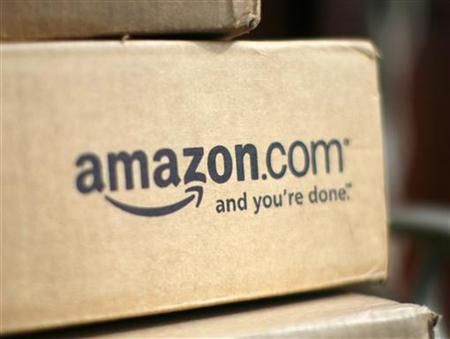Drawing the parallels between Facebook and ‘The Matrix’: Is Zucky the ‘Architect’…
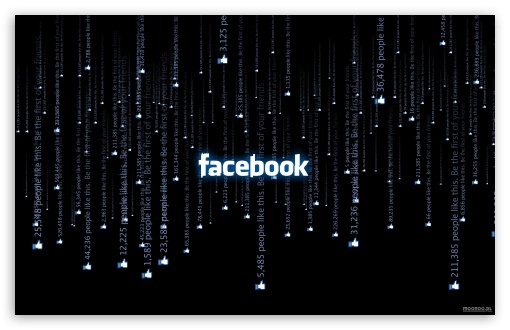
“You have to understand, most of these people are not ready to be unplugged. And many of them are so inured, so hopelessly dependent on the system, that they will fight to protect it.” -Morpheus, The Matrix
I’m sure many of you have seen this film. Keanu Reeves plays the part of Tom Anderson, an average office-rat by day, and Neo, a computer programmer/hacker by night. He is recruited by a group of ‘rebellions’ and eventually takes the ‘red pill’ (over the ‘blue pill’: ignorance is bliss?), thus embracing the painful truth that the world as he knows it is one big computer program. He is told that his mind has been controlled by intelligent machines for the duration of his life, as well as the fact that these machines harvest the bioelectrical energy of humans, who are kept docile within the Matrix, a simulated reality of the world (sound familiar). Without this ‘bioelectrical energy’, the machines would cease to live.
The idea of ‘The Matrix’ has been influenced by numerous religious beliefs and philosophies including those of Abbott, Plato, and Descartes. The thought of our world being controlled and monitored by intelligent machines is both scary, yet highly unlikely.
However, as the internet becomes an increasingly habitual platform for facilitating communication and personal relationships, there are an increasing number of parallels that can be drawn between the giant social networking sites and ‘The Matrix’.
“Your appearance now is what we call “residual self image”.
-Morphues, The Matix
Yesterday, we had posted an editorial detailing the unsettling news that Facebook, the site that serves as a platform for creating and maintaining your ‘residual self-image’, may allow children under the age of 13 to use the social networking service. This move was inevitable, though the dropping stock price has served as a catalyst. Facebook has been keeping tabs on it’s users for years, and now it is moving on to children, and FB most likely knows more about you and me than our closest friends. Furthermore, the social networking service sells this information, one of it’s biggest money makers. It’s other revenue sources include advertisements, and online games. All these sources of revenue rely on the continued and consistent use of the service by it’s user base. No users, no money…Can you see the parallels?!? Let’s break it down:
Facebook: Users + Activity = Money.
Matrix Intelligent Machines: Humans + Bioelectric Energy = Life.
Now, let’s not be too cynical…doesn’t every company rely on this equation? Without users/humans/consumers, the company has no market to sell it’s products, and without these users/humans/consumers putting in some energy, the products the company is selling won’t be bought. However, what other company has the vast knowledge of it’s userbase like Facebook does? Furthemore, what other company makes billions of dollars selling this information? Answer: None…
Do you control your information on Facebook, or does Facebook control the information on you??
-C. Sullivan
Look Ma! 2000 Friends!
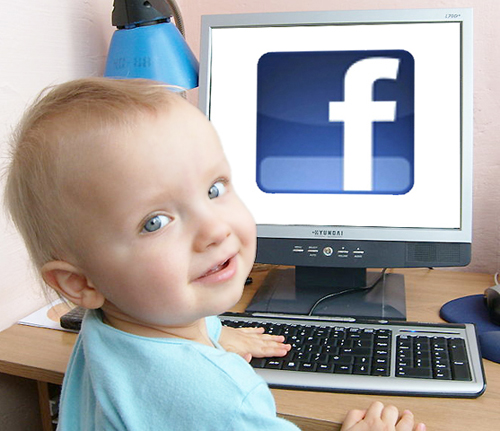
I am always perplexed and yet simultaneously curious when I see a child walking around with an iPad, smartphone, or any other type of mobile device. Are these items making children more savvy? Maybe parents want their children to become technologically proficient to stay ahead of the curve-especially in such a competitive work environment. In case you didn’t realize, I am being overtly facetious. Anyway, when I was eight, I was outside playing backyard football, shooting hoops and doing what normal children do: or did? In any event, a rumor has surfaced that Facebook now intends on allowing users under the age of thirteen to use the social platform. Sounds like a fantastic idea to me! What an altruistic move by Facebook; they definitely want to extend their service to younger people so as to enhance their lives. Since the company went public, the companies stock has precipitously declined. As we all know, and as I have stated time and time again: Facebook lacks a steady stream of REVENUE, as people continue to move to mobile devices. So what does the company do? The answer is so simple: exploit the youth – a completely untapped goldmine. With users under the age of thirteen, the company will surely increase its 900 million users significantly. Of course, the company says that the kids accounts will be linked to their parents, so as to provide protection. However, this possible move is clearly a ploy to generate more money. More children than adults will be using Facebook from a browser. That means that the company will be able to generate more advertising dollars, as well as make money from games that children will surely nag their parents to buy. The ironic thing is that I write this blog as I develop my own smart phone product. So I guess it’s not in my interest to rag children for carrying smartphones, tablets, etc. On the other hand, I don’t think that youngsters should have these devices. I think that they subject themselves to things that they are not ready to see, and should not see. Furthermore, it makes children vulnerable to sick people that are on the web simply to associate with kids. If less children carried smart phones correlated with OptiLaunch making less money off our products, I have no qualms: good! I’d rather children be safe than exploit them to the myriad of liabilities they face on the web.
Bottom line is this…Facebook knows that the majority of everyday interactions between children under the age of 13 are mediated by the childrens’ parents. Once the parents lose this control, there is no telling what kind of serious danger children can put themselves in (they don’t know any better!!).
Facebook…Zucky…Take a step back and think of a better way to rake in profits than exploiting youths.
-D. Spinelli
Technology=Depersonalization?

Last night I went out to dinner with a few of my best friends. We went to a wonderful Asian-fusion restaurant that has always been a favorite of mine. The ambiance was nice: music in the background, and a very avant-garde, and cosmopolitan visual experience.My compadres and I conversed and laughed as we ate our appetizers and imbibed our drinks. Just after the appetizers came, I had to use the bathroom. As I walked past the other tables, I noticed a dearth of engagement between various patrons. In fact, the majority of people were not even looking at each other. What were they looking at? Their smart phones obviously. I made a mental note, but did not think much of it until I sat back down at my own table. Even my friends, my best friends in the world, were glued to their phones. What did I do? Obviously I followed precedent and began checking my ever-so-important emails and Facebook messages. I felt like an asshole, but then again, isn’t that the norm these days? People glued to whatever mobile device they are using, while ignoring others thoughts or feelings. My favorite is the “head nod,” where you act like your’re listening to the person speaking with you, when in reality you are not hearing a word they say and definitely don’t care-nod on, and hopefully they’ll shut up! Why am I talking about all of this? I guess what I’m trying to insinuate or at least shed light upon, is the fact that tech company’s and social networking sites want us to believe that they are making the world an easier place to live and making us “more connected.” I believe that the antithesis is true. The rapid advancement of technology and its domineering presence in all facets of our lives is leading to extreme depersonalization. This hypothesis runs completely contrary to common perception. I could be completely wrong, but it makes sense to me. I have seen it, lived it and have been and continue to be a culprit of “technological depersonalization.” Can I coin that expression? I’m sure some scholar has shed some light on the situation- so it may not be an original concept. In any event, as I sit and ponder, I think about the past decade, as technology has rapidly grown and how human interaction has changed. I think it has changed for the worse. Although friends and family may think that they are more connected,
it is my contention that they are not. I used to sit down with my family every night, my mom prepared dinner, and the whole family discussed life: how school was going, how friends were doing, politics, etc. But over the years, these family gatherings became more and more uncommon. Even when we did sit down, dinners were shorter, maybe even rushed. I’m not quite sure where I’m going with that, but I want to segue into why we as human beings think technology is enhancing our lives. In society today, having the most friends on Facebook is an accomplishment. Technology is meant to make life easier, not define us as human beings. For example, I write, I develop Mobile Apps, but that is not WHO I AM. Who I am as a person is completely disparate from what I do for a living, who I interact with, what I do in my spare time. I envy people who lived in the early twentieth century: devoid of overwhelming technology, and the strangle hold that it now has on humans. While advancements in technology are obviously helpful,
have answered innumerable questions, as well as assuaged a myriad of problems: at what point is enough, enough? Is the progression of technology actually helping us, or is it hindering us. I majored in history, so I’m going to use a historical reference to demonstrate a point. During World War II the United States Military Industrial Complex underwent a complete metamorphosis. Subscribing to the “Total War” paradigm, meant that bigger was better, as armies still fought head to head. Therefore, the U.S. increased production of heavily armored tanks, bombers, and increased our nuclear capabilities (mechanization of our military was in full effect) ; obviously this worked out for us. This theory of, “Total War,” was increased evermore, as Atomic Technology progressed and all emphasis was on Intercontinental Ballistic Missiles (IBM’s). This war doctrine worked out for a while: at least until Vietnam. The U.S. was now fighting a different type of enemy-one that’s best interest was not to fight head to head, but instead prescribe to insurgent tendencies “jungle warfare.” The U.S. Military’s technology was trivial in the face of an enemy hid in the jungles, and hid amongst the civilian population-we were over qualified technologically and too highly reliant on head to head warfare, “Total War,” AKA head to head combat. It’s no wonder that Vietnam was a disaster. Currently, our military endeavors in Iraq and Afghanistan are having the same problem. The military is too reliant on technology, that it is ill-equipped to partake in counterinsurgency operations. Nowadays our enemies are furtive, patient and hard to detect-big tanks and big bombs don’t are obsolete in this type of warfare. To connect this back to technology in our everyday lives, I guess I’m attempting to rear an important question-at what point will technology become more of a hinderance than a help? I think that is an imperative question to explore, and while there is no definitive answer, I think that it is something we must keep in mind. Life is so complicated now. A lot of people are under the impression that it is about money, flash, success etc. While these things may enhance our lives, they will never define it, and most importantly never fill the void that we every human being strives to do. I think life is about passion and more importantly love. Kierkegaard, one of my favorite philosopher was adamant about the need for love in our lives (and I couldn’t agree more). Love for another and its reciprocation creates a bond: an affirmation that is stronger than anything in this world- It transcends everything else. I hope my readers find something hear to think about. As always, agree, disagree, love, hate-I always value feedback.
D. Spinelli
Limitations of Technology, or Marketing Conspiracy?
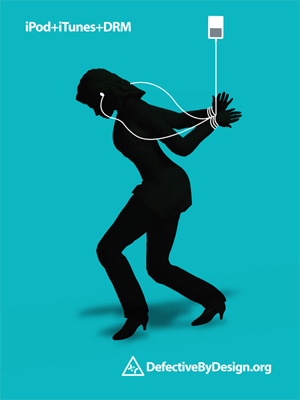
For the past five years or so I have bought a number of computers (both PC and Mac) and smartphones (Blackberries, iPhones, Androids) and have disposed of each and every single one within a couple of years after purchase. Up until a few months ago, I have always assumed that that there was some inevitable hardware or software issue that caused most of these devices to become nearly incapacitated after a couple years of use. Only recently have I realized that this problem applies to technology as a whole. Is this issue an actual shortcoming of current technology?? Or is it a grand marketing scheme?? Whatever the case may be, American consumers quickly abandon “devices” for the new “new” thing. According to a Forbes article, Americans spend $35 billion annually on mobile devices. Personally, I have abandoned plenty of technology that worked just fine, for the newest device. Is this an extension of good marketing or is technology increasing so quickly that we are forced to keep up or be left in the dust? Besides scrapping devices that worked for ones that are dubbed “better”, I have also had a myriad of devices that have failed on me, and therefore forced me to either buy a new one or switch to a different device (I don’t even want to divulge the number of PC’s or iPhones that I’ve been through – #thankgod for insurance. When a device fails on you, then you have two choices: (1) buy the same one, or (2) spend the extra bucks and get the newest edition. The fact that computers, tablets and mobile devices tend to have problems makes me wonder if technology is made to fail. It makes complete sense. Why would Apple or Dell make a product that will last a decade, and always run like it’s fresh out of the box? It is not in a technology company’s best intrest to create a product that has an extremely long life span. Big tech companies need to sell tablets, laptops, smart phones, iPods, etc., and therefore must continue to put out products that are not made to last, or that will soon be replaced by a “better” product. These “better” products are usually nothing more than a nuance on a previous one. Americans are more guilty than any other people for falling into the trap of abandoning perfectly good tech for a newer version. Why do we do this? Also, on a side note, I had the privilege of working for a very large commercial insurance company in the Extended Warranty Department (as an underwriter). I know from experience that all those mobile devices that you trade in are “refurbished” and resold (BIG MONEY!). American retailers learned early in the 20th century that consumers will readily buy disposable products. Is that the case today with technology? I truly believe so.
-D. Spinelli
NBA is Fixed

I don’t know about most people, but the NBA regular season could potentially be the most boring sport to view. There’s no defense, and star players are constantly calling for the ball so that they can increase their stats-even if it’s detrimental to the team’s performance. Carmelo Anthony will drop 38 points on 15 for 45 shooting (very commendable Carmelo). I might as well watch the AND 1 Mix Tape Tour (“SPYDAAAAAA!”). At least the viewer knows what he or she is getting into. The commentary is more exciting and the trick shots are pretty damn cool. In any event, I am writing to comment on the NBA as a whole and the controversy that has surrounded it for some time-especially during the current playoff season. On a side note, I was happy to see Michael Jordan’s Bobcats not receive the first overall pick in next years draft (side note: the New Orleans Hornets, who are owned by the NBA, had a 14% chance of getting the #1 pick, and they got it….fixed??). There’s something about Jordan’s aloof attitude that makes me cringe. If you don’t agree, watch his Hall of Fame induction speech – it’s pretty comical. I’m sure Jordan rushed off to the casino after last night’s disappointment to gamble away his feelings. Anyway, while watching this years playoffs, I can’t help but wonder if it’s rigged. Did anybody see the five technical fouls that were awarded to the Celtics in game 1 against the favored Heat. Ray Allen was given a technical for jumping in the air with his back turned to the referee. I’m not quite sure, but isn’t jumping a big part of basketball? Kevin Garnett was given a technical for flicking the ball back to the referee. I’m calling BS on those techs. However, the controversy extends so far beyond the ill-advised techs given in Game 1. Last night I was astounded by the incompetence that the referees displayed. With the came tied in overtime Rondo went up for a layup and was clearly slapped in the face by Dwayne Wade – no call!?!? That led directly to a fast break and a dunk by Haslem. Not only did the refs blow that call, but later in OT Wade drove to the basket and used his legs to create separation between himself and Kevin Garnett (basket and foul – count it!) Why is it that referees can look at Flagrant 2’s, but not Flagrant 1’s. The myriad of questionable calls makes me ponder the motives of the officiating crews – Tim Donaghy, remember that clown? But the dearth of good officials is an extension of the NBA hierarchy. Simply put, David Stern is either lackadaisical, or has ulterior motives. It’s no secret that advertising is where the big money comes from: not only for the networks, but for the NBA itself. So, the best match ups between the most hyped up teams, with the most loyal fans, equals more viewers, which in turn leads to more advertising revenue. Are these games a self-fulfilled prophesy:it makes complete sense. Why isn’t David Stern doing anything about these abysmal calls? Maybe I’m cynical or downright paranoid, but something is awry; I can feel it. Thoughts? Sentiments? Rebukes? I’m all ears.
-D. Spinelli
Facebook Has their Evil Eye on Chomping It’s Way Towards a Mobile Phone
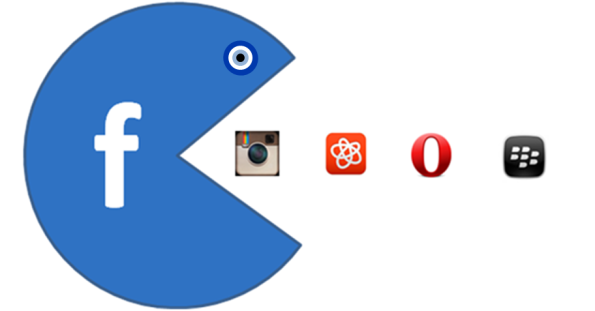
I don’t know exactly what Mark Zuckerburg’s vision was when he came out with ‘The Facebook’ (a minimal viable product) that cost about twenty thousand dollars to get off the ground. However, as the site evolved and grew, so did its advertising revenue. When Facebook was a private company its revenue model was quite simple; with 900 million users in roughly eight years, companies wanted to advertise…makes sense, right? But now, after the stock has trickled down from it’s original $38 dollar IPO (Down near $28 on the day), investors want to know how the company is going to generate revenue. Clearly advertising dollars are down, which makes complete sense, as mobile phone sales significantly out-do desktops and laptops. It’s hard to advertise on mobile phones – fact. Investors don’t give a shit about how Facebook is going to increase revenue and adapt to an ever-changing marketplace – they just want results. Therefore, Facebook has already announced its desire to tap into the mobile phone market and produce its own device. Now that the company has gone public and has an arsenal of billions at its disposal, it makes complete sense for them to move in that direction. How should they go about it? Creating a mobile device isn’t simple, and to make matters worse, Facebook has absolutely no experience in the field. The idea is excellent; Facebook operating on its own phone could do wonders for the publicly traded company. However, with no experience, it will be a daunting task for Facebook to develop a device that has the hardware, and operating system that will run smoothly with the sites social functionality. Research In Motion (RIM) – the producer of the “CrackBerry” is a logical acquisition for Facebook. Or is it? RIM is at a nine year low, however it still has a large consumer base. It is still widely used in the corporate world, because of its email security, sleek look, arguably the easiest keyboard to use, and not to mention, the wealthiest people in the world. Is RIM a good buy for Facebook at this point? Should Facebook wait for the floundering company’s stock to drop even lower, or does it risk another company furtively buying the company. Will RIM continue to flounder, or will it reposition itself and adapt (most likely not)? I think Facebook would be smart to buy it while the stock is at $10.73. Let me know your thoughts. Love feedback!
